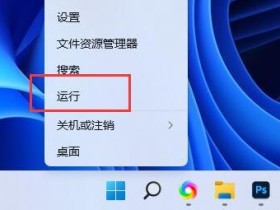IP地址正则表达式模式
^([01]?\\d\\d?|2[0-4]\\d|25[0-5])\\.([01]?\\d\\d?|2[0-4]\\d|25[0-5])\\.
([01]?\\d\\d?|2[0-4]\\d|25[0-5])\\.([01]?\\d\\d?|2[0-4]\\d|25[0-5])$描述
^ #start of the line
( # start of group #1
[01]?\\d\\d? # Can be one or two digits. If three digits appear, it must start either 0 or 1
# e.g ([0-9], [0-9][0-9],[0-1][0-9][0-9])
| # ...or
2[0-4]\\d # start with 2, follow by 0-4 and end with any digit (2[0-4][0-9])
| # ...or
25[0-5] # start with 2, follow by 5 and ends with 0-5 (25[0-5])
) # end of group #2
\. # follow by a dot "."
.... # repeat with 3 times (3x)
$ #end of the line整个组合表示从0到255的数字,后跟点“。”,重复4次并以点“。”结尾。 有效的IP地址格式为“ 0-255.0-255.0-255.0-255”。
1. Java正则表达式示例
package com.mkyong.regex;
import java.util.regex.Matcher;
import java.util.regex.Pattern;
public class IPAddressValidator{
private Pattern pattern;
private Matcher matcher;
private static final String IPADDRESS_PATTERN =
"^([01]?\\d\\d?|2[0-4]\\d|25[0-5])\\." +
"([01]?\\d\\d?|2[0-4]\\d|25[0-5])\\." +
"([01]?\\d\\d?|2[0-4]\\d|25[0-5])\\." +
"([01]?\\d\\d?|2[0-4]\\d|25[0-5])$";
public IPAddressValidator(){
pattern = Pattern.compile(IPADDRESS_PATTERN);
}
/**
* Validate ip address with regular expression
* @param ip ip address for validation
* @return true valid ip address, false invalid ip address
*/
public boolean validate(final String ip){
matcher = pattern.matcher(ip);
return matcher.matches();
}
}2.符合的IP地址:
1.“ 1.1.1.1”,“ 255.255.255.255”,“ 192.168.1.1”,
2.“ 10.10.1.1”,“ 132.254.111.10”,“ 26.10.2.10”,
3.“ 127.0.0.1”
3. IP地址不匹配:
1.“ 10.10.10” –必须为4“。”
2.“ 10.10” –必须为4“。”
3.“ 10” –必须为4“。”
4.“ aaaa” –仅允许数字
5.“ 10.0.0.a” –仅允许数字
6.“ 10.10.10.256” –数字必须介于[0-255]之间
7.“ 222.222.2.999” –数字必须介于[0-255]之间
8.“ 999.10.10.20” –数字必须介于[0-255]之间
9.“ 2222.22.22.22” –数字必须介于[0-255]之间
10.“ 22.2222.22.2” –数字必须介于[0-255]之间
4.单元测试
package com.mkyong.regex;
import org.testng.Assert;
import org.testng.annotations.*;
/**
* IPAddress validator Testing
* @author mkyong
*
*/
public class IPAddressValidatorTest {
private IPAddressValidator ipAddressValidator;
@BeforeClass
public void initData(){
ipAddressValidator = new IPAddressValidator();
}
@DataProvider
public Object[][] ValidIPAddressProvider() {
return new Object[][]{
new Object[] {"1.1.1.1"},new Object[] {"255.255.255.255"},
new Object[] {"192.168.1.1"},new Object[] {"10.10.1.1"},
new Object[] {"132.254.111.10"},new Object[] {"26.10.2.10"},
new Object[] {"127.0.0.1"}
};
}
@DataProvider
public Object[][] InvalidIPAddressProvider() {
return new Object[][]{
new Object[] {"10.10.10"},new Object[] {"10.10"},
new Object[] {"10"},new Object[] {"a.a.a.a"},
new Object[] {"10.0.0.a"},new Object[] {"10.10.10.256"},
new Object[] {"222.222.2.999"},new Object[] {"999.10.10.20"},
new Object[] {"2222.22.22.22"},new Object[] {"22.2222.22.2"},
new Object[] {"10.10.10"},new Object[] {"10.10.10"},
};
}
@Test(dataProvider = "ValidIPAddressProvider")
public void ValidIPAddressTest(String ip) {
boolean valid = ipAddressValidator.validate(ip);
System.out.println("IPAddress is valid : " + ip + " , " + valid);
Assert.assertEquals(true, valid);
}
@Test(dataProvider = "InvalidIPAddressProvider",
dependsOnMethods="ValidIPAddressTest")
public void InValidIPAddressTest(String ip) {
boolean valid = ipAddressValidator.validate(ip);
System.out.println("IPAddress is valid : " + ip + " , " + valid);
Assert.assertEquals(false, valid);
}
}5.单元测试–结果
IPAddress is valid : 1.1.1.1 , true
IPAddress is valid : 255.255.255.255 , true
IPAddress is valid : 192.168.1.1 , true
IPAddress is valid : 10.10.1.1 , true
IPAddress is valid : 132.254.111.10 , true
IPAddress is valid : 26.10.2.10 , true
IPAddress is valid : 127.0.0.1 , true
IPAddress is valid : 10.10.10 , false
IPAddress is valid : 10.10 , false
IPAddress is valid : 10 , false
IPAddress is valid : a.a.a.a , false
IPAddress is valid : 10.0.0.a , false
IPAddress is valid : 10.10.10.256 , false
IPAddress is valid : 222.222.2.999 , false
IPAddress is valid : 999.10.10.20 , false
IPAddress is valid : 2222.22.22.22 , false
IPAddress is valid : 22.2222.22.2 , false
PASSED: ValidIPAddressTest([Ljava.lang.String;@1d4c61c)
PASSED: InValidIPAddressTest([Ljava.lang.String;@116471f)
===============================================
com.mkyong.regex.IPAddressValidatorTest
Tests run: 2, Failures: 0, Skips: 0
===============================================
===============================================
mkyong
Total tests run: 2, Failures: 0, Skips: 0
===============================================参考
翻译自: https://mkyong.com/regular-expressions/how-to-validate-ip-address-with-regular-expression/





